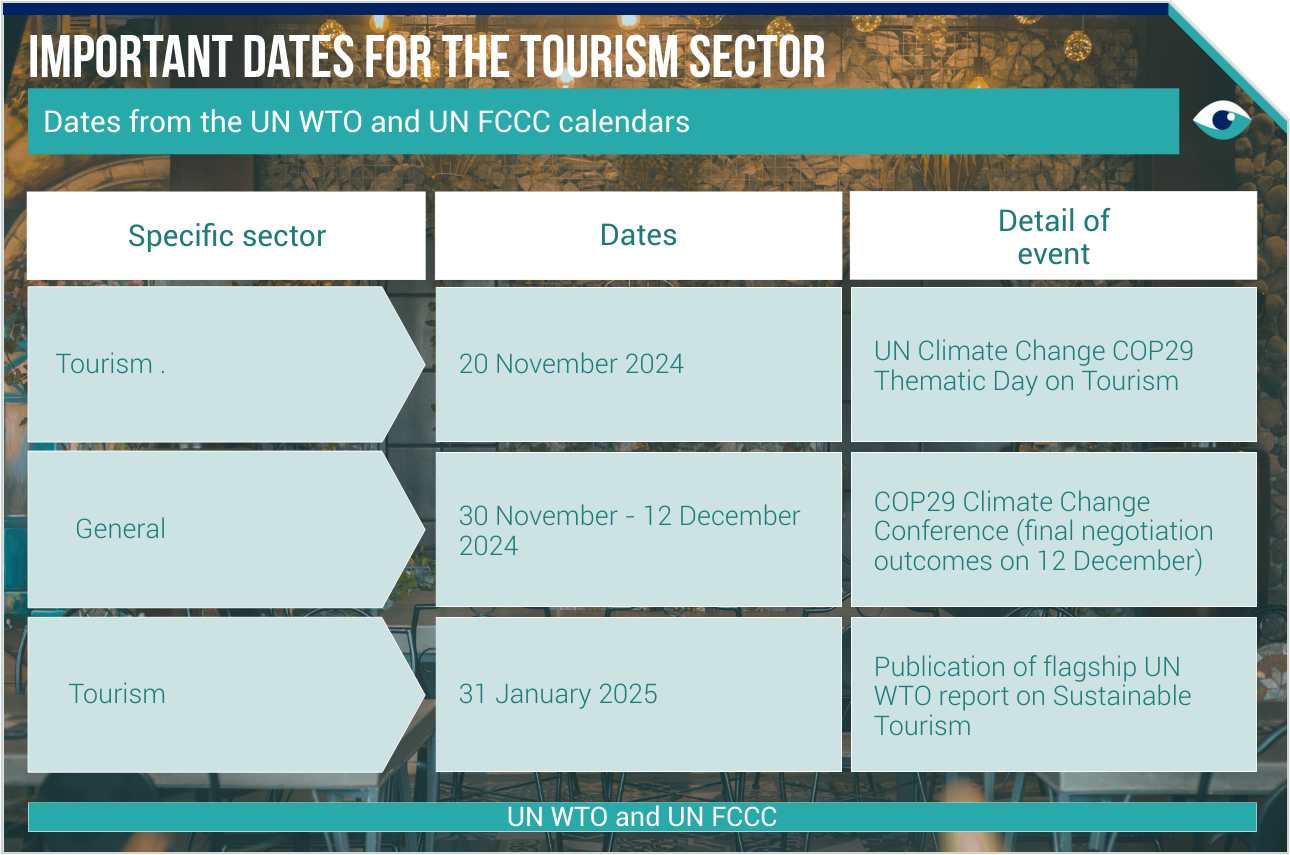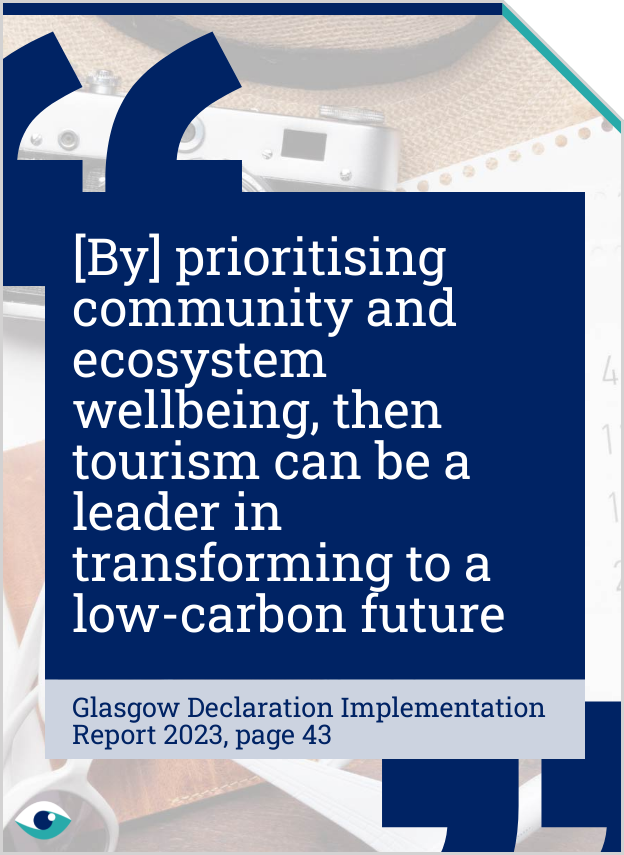The tourism sector, contributing 8–10% of global emissions, continues to face scrutiny for its environmental and social impacts. COP28 reaffirmed the need to meet the Glasgow Declaration’s targets of 50% emissions reduction by 2030 and net-zero by 2050. Looking ahead to COP29, new opportunities for innovative financing and inclusive policymaking—especially for marginalised voices—could help accelerate climate action. Enhanced transparency and collaboration will be essential to achieving these ambitious goals.

Tourism industry poised to leverage climate action
Tourism's climate impact under scrutiny, but accelerated and inclusive climate action offers opportunities for sector’s future
Policy
Tourism (all industries)
Publication date: 23 Sep 2024
By John Gaisford
AT A GLANCE
Innovative financing and action could position the tourism sector as a leader in profitably transforming to a low-carbon future.
COP28 in Dubai underscored this urgency and COP29 in Baku is expected to further develop frameworks for financing and collaboration.
Tourism businesses must swiftly adapt to meet these evolving goals or risk long-term viability.
Policy framework
The Glasgow Declaration calls for a decade of tourism climate action, emphasising responsible practices to build a sustainable post-COVID tourism landscape. COP28 policy briefs further stressed the need to rethink funding strategies, including addressing the gender gap in climate finance. COP29 in Baku offers an opportunity to expand these discussions, prioritising marginalised voices and ensuring equitable access to resources that foster climate-resilient industries.
Measuring emissions
Accurately measuring tourism emissions is crucial for tracking progress towards the Glasgow Declaration’s goals. Yet, the UNWTO reports that only 20% of tourism stakeholders currently measure their emissions, with many citing a lack of expertise. COP29 in Baku presents an opportunity to bridge these knowledge gaps by promoting streamlined reporting mechanisms and platforms like the One Planet Network, GRI and the TCCR, which can enhance transparency and accountability across the industry.

Risk mitigation
Addressing risks to tourism businesses, such as missing emission reduction targets or the regional effects of a 2ºC temperature rise, is critical. COP29 in Baku is expected to deepen the focus on climate resilience, particularly for low-income countries and island states. Robust, climate-resilient policies and multipurpose financing will be essential. As UN Climate Change Executive Secretary Simon Stiell noted, indigenous peoples are well positioned to lead just transitions, leveraging their traditional knowledge and values.

Sector wide commitments
The industry's growing commitment to sustainability is reflected in the increasing number of signatories to the Glasgow Declaration and pledges for net-zero emissions by 2050. COP29 offers an opportunity for governments to further strengthen their positions as sustainable tourism leaders. Costa Rica, powered by 98% renewables, and Türkiye, partnering with GSTC to certify accommodations, are prime examples of how embracing sustainable tourism criteria can enhance a country's global appeal.
FURTHER READING
- Baseline report on climate action in Tourism (UNWTO)
- A practical guide to sustainability reporting (GRI)
- Reality check: lessons from 25 policies advancing a low-carbon future (World Bank)
